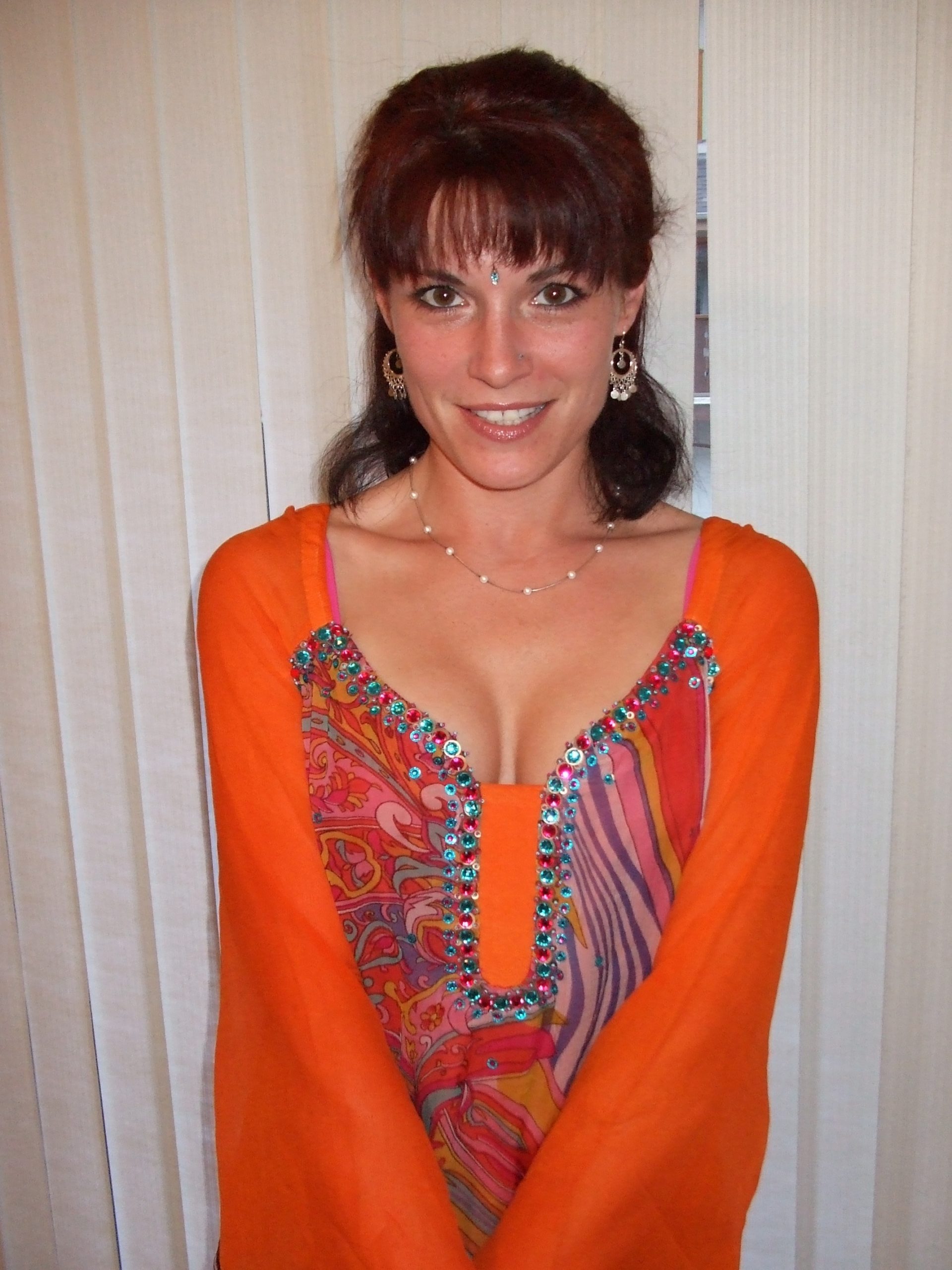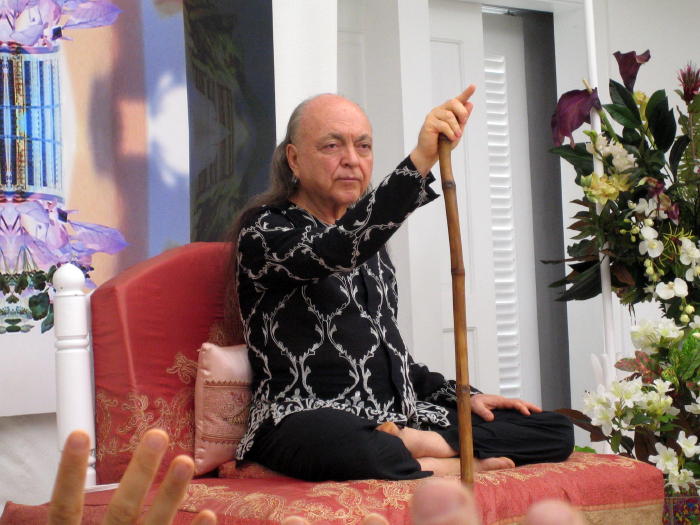
Fourth Stage…”I” think?
Adi Da Samraj describes the Seven Stages of Life that encompass the entire range of human potential up to “Most Perfect Divine Enlightenment”. See the link above to get an overview of these stages. What I describe here is really my interpretation and understanding of where I’m currently at and how I fit in that schema.
I’m not a particularly scholarly student of Adidam and am likely to misstate or misunderstand the first three stages and the beginning of the fourth stage, but my goal here is mostly to express my thoughts and experiences and hope they can be helpful to anyone reading.
The first three stages of life relate to childhood through adolescence and then on to the maturation of basic human “responsibility” in adults. But the word, responsibly, is a tricky one. Most people who aren’t in jail tend to think of themselves as responsible (and probably a few who are in jail do too).
But here’s a better test. Imagine you’re driving down the highway in the slow lane going the speed limit and someone cuts you off trying to get to the exit and honks and flips you the bird screaming something about you driving too slow as they almost clip the front of your car. What’s your first thought and feeling?
Or imagine you’re a young woman working in an office largely composed of male colleagues and you overhear a co-worker referring to you indicate you have a “nice ass but shame about the face.” How to you feel about this?
Or imagine you’re a highly experienced person of colour who is a recent hire for the government when someone who was passed over for a promotion that you got hired to fulfill says the only reason you got the job was because “you’re black” and they had to hire “someone like you”. What’s your reaction?
If, in these types of situations, your thoughts, feelings and actions tend to be angry, retaliatory or indignant, you’re actions are not “responsible” they are reactive, and are more than likely the result of a lifetime of learned and patterned behaviours.
Being responsible means being “able to respond” in any situation rather than merely to react. If you’re go-to move is to fire from the hip at slights, insults, or apparent acts of aggression, then by this definition, you are not very responsible and neither is virtually anyone else, including me in almost every situation like this my entire life…until recently.
But before I try to explain what’s changed and why, I also want to say that by and large, I’m still often a reactive knucklehead complicating relationships and making some bad situations worse. The patterns run pretty deep.
For many years I’ve listened to and studied the teachings of Adi Da Samraj, the simplified principal statement of which is that there is only God. Along with this statement are a variety of arguments, many of which have seemed to me to be unarguably true. Some are esoteric in nature, but others are straight forward observations of fact verifiable by science but with significant spiritual ramifications.
For instance, all human experience is mediated by our biology and the apparatus of our senses. Every sight, sound, taste, smell and touch is mediated by our electrochemical, biological machinery before it arrives somewhere in our awareness.
When I taste chocolate, the chemistry of the chocolate breaks down in the saliva of my mouth and the various taste sensors in my mouth provide my awareness with a collective experience that my mind remembers by comparison with other tastes and I derive a pleasurable sensation. I like chocolate.
Because every experience we have is interpreted through this biological machinery, we never have a direct experience of anything we’re interacting with. My taste of chocolate is actually a combination of chemical interactions translated by a nervous system that’s electrical in nature to a mind that’s interpretive in nature (extra creamy, smooth milk chocolate just as I like it).
The enjoyment of chocolate like the suffering of pain in the body are nothing more than brain chemistry. Neither is substantial. Neither is real in the most concrete sense. They are both interpretations of the relative value to the someone experiencing them. I like the brain chemistry of chocolate, I dislike the brain chemistry of pain. They are useful adaptations for survival.
To say “I” have had a direct experience of chocolate is not dissimilar to suggesting that a scanner that records a photo of a steak just had a meal. Our consciousness exists in this “meat box” that mediates our entire universe and somewhere “inside” our minds interpret this information and decides if experiences are “good” or “bad”. I have never had a direct experience of anything whatsoever and yet I feel as though I know what things are. The world is an hallucination I’m convinced is real.
And then, everything I experience, which is being interpreted through a biological machinery is also an object to me, the experiencer. Necessarily, everything presented to my awareness is an “object” with the one who is aware of the experience being the “subject”.
Even my mind and the thoughts it generates must be objective to “me” as the one aware of my mind and thoughts. I can direct my mind to think on a topic and can see words in my mind. I cannot be that mind or thoughts while directing them. They are objects to something that is prior. As Adi Da says, “you don’t think in order to think.”
While I’ve considered this idea many times over the years, at some point this fall while in northern BC hunting, the implications of this produced a very compelling change in my patterned behaviour.
I was looking over a field of trees at a mountain behind and the blue sky beyond that. I imagined the light from the sun reflecting off the mountains and trees and passing through the atmosphere filtering light on it’s way through my eyes and thought to myself, everything I’m seeing is an object to me as the viewer.
But then I had an intuition that the cold feeling on my face and hands were identical in terms of the apparatus of senses and that the feeling of cold was an object to me. In fact, it occurred to me that all my sense experiences of my body are objects to my awareness in exactly the same way as the trees, mountain and sky. So why do I presume that the feelings on my face are part of “me” and the mountain and trees are not?
I realized that while obviously my awareness seems more directly associated with the experiences of my body, everything is always an object and that therefore, “I” could not be the hand, the body, the tongue or the objects these items presented as experiences.
Adi Da says that “no matter what arises, you are merely the witness.” I had begun to understand this more deeply with this noticing that there is awareness, the mere ability to notice a “something” and that every type of sensation, thought, feeling, in fact all the world outside and inside were objects to “me”.
I envisioned a metaphor in which the “me” is like someone watching a wall that a movie is being projected onto. The images and sensations and sounds of this movie are landing on this wall and are therefore able to be noticed, but the one noticing is neither the images, the projection or the wall. Or possibly just the wall, a place where awareness “lands” or “registers”.
I appreciate that these words when read by you are unlikely to feel profound in your own case. I have no idea why prior to this time I had considered these arguments and was unchanged, but then somehow at this time, they registered more firmly. And from this point on they started having the secondary impact of undoing my certainty of all things even as I continued to live and experience.
While it may appear I’ve wandered off the topic of being “responsible” I will bring it back there. But there’s one more insight that took root in this period that is critical to how I’m now functioning more “responsibly” than at any time ever in my life before.
Perhaps the first argument people coming to Adidam hear is that we are all “seekers.” In every moment, a person is seeking something. This activity arises from our own action that Adi Da calls, the “self contraction”. He tells us that God is that which is Always Already The Case, and therefore to search for God is to deny God in the present moment.
The metaphor from my own real life circumstance for this action is like running around the house looking for my lost car keys while actually holding them in my hand. I’ve really done this. I was holding my car keys in my palm while holding my shoes with my fingers and then spent 10 minutes ranting like a crazy person over my frustration that my keys were missing, stolen or moved by someone. It wasn’t until I released both keys and shoes to use both hands to search that I heard them rattle to the floor. Searching for God is like this. Searching for God is the denial of God in the present moment.
So while my certainty grew that everything in my awareness was an object to “me”, I began to see that all my thoughts emotions were also objects. And that by and large, the thoughts I had were efforts to resolve some problem or some search. I started to feel that every problem solving thought was very similar to holding the keys I was looking for and the more clearly I saw this, the less often thoughts formed randomly between specific efforts to think.
But let me give you a specific example. I’ve had this plan for a while to eventually own “1000 acres” of land in BC somewhere. We’ve got savings, we’ve got investments and we’ve got an accommodations business in Sun Peaks to help both sustain us in the present and move us toward the future purchase of my acreage. I look forward to all the plans for ranching, farming, hunting, building, and life affirming activities I’ll do with my wife, children and grandchildren on my 1000 acres. It’s gonna be sweet!

But there’s a pandemic happening right now and our accommodations business is getting crushed with cancellations and loss of sales. I began to notice the thoughts of frustration that my acreage was getting further away. I noticed how I was having unhappy thoughts in the present moment because I felt that my future happiness at having acreage was being pushed further out in to the future.
In other words, I was feeling unhappy in the present moment because I felt my ability to be happy in the future as the proud owner of 1000 acres was being denied me by the pandemic. This is like looking for keys while holding them in my hand. I was denying myself the present ability to be happy in this moment as though happiness could only be enjoyed with acreage in the future.
Then combined with my growing awareness that thoughts emotions are objects to my awareness, even as I noticed my present unhappiness, I stopped thinking about the future, the pandemic and pretty much anything at all and as the thoughts and feelings fell away because the momentum of self identification with those thoughts and feelings also fell away, I became happy. Glowingly happy. Ecstatically happy, presently.
And that’s pretty much what’s happening almost constantly now. In between the occasionally thought about these sentences I’m writing, the thoughts often stop appearing and still the words get written. All the while in varying intensity I’m enjoying feelings of bliss and joy (although these too are objects to “me” but are not emotions so much as states of being).
So how does this almost indulgent satisfaction with my present happiness result in responsibility?
I think it’s because these two insights and the changes in behaviour they produce have begun to break down the reactive patterns that would normally be running the show. Now when a story about Trump flashes across the screen in my living room, instead of feeling angry, indignant or frustrated as my patterns inevitably produced a few months ago, I don’t feel one way or another most of the time. I’m not so convinced that if he were to stop being a dick that I would be happier in the future.
As I’ve become less certain that I am the body and mind that keeps showing me thoughts and feelings and tastes and sensations, I feel less “contracted” or reduced down just to those experiences. In this strangely more expanded and less limited sense of “me”, the usual patterns that make me feel like I’m over and against something just aren’t arising as often or with as much force as they used to. And the thoughts trying to remedy some felt discomfort in the present moment as a result of those patterns are not arising as forcefully either.
And from this less contracted, more feeling state, when patterned thoughts or feelings begin to arise, they can almost instantly be seen as the cause of the discomfort itself. This is a remarkable discovery! Even as the thought that my 1000 acres is getting further away starts to form, I can feel that the thought itself is the source of my unhappiness. It typically dissolves and the contracted feeling passes.
And really, is my acreage being pushed further out? If I’m simply “in joy in myself” why surrender this enjoyment presently hoping to experience it in the future? That’s madness!
I’m beginning to understand that not feeling “contracted” down to the thoughts that arise or automated identification with the sensations my body and mind keep presenting to “me” is itself the blissful feeling Adi Da indicates is His State. Just a taster, however, because by and large I continue to exist as the pattern called “Cage.”
Before I finish this post, let me share one last example about this discovery of what it is to be “responsible” that has shown itself to me as the “patterns become obsolete.”
In one specific way throughout much of my life, I have been a very average and typical guy; I will react to a beautiful female that crosses my field of vision. On TV or on a computer screen or on the street, images like this will almost instantly capture my attention. My masculine body and mind are patterned to react.

In the past few months while enjoying a less contracted existence, whenever “acreage” shows up and I feel myself contracted by whatever form it takes, I spontaneously noticed how the image of a sexy woman produces this same discomfort. More subtle than being unhappy from my income being crushed by the pandemic, but also more immediate and involuntary.
I can be sitting in my living room breathing in and out enjoying this blissful state that’s largely free of thoughts or complications and the moment a particularly attractive woman is shown on a screen, I collapse down to being a guy in a body. But now I notice that collapse and feel it as an acute form of discomfort. I’m diminished by my reaction.
And because our world speaks in this particular semaphore so often to men (and woman), I’m made more and more aware of this pattern of reaction—and it’s having less and less effect on “me.”
After many years of “listening” to Adi Da’s teachings I seem to have finally begun “hearing” them. Accompanying this hearing is this resultant shift in behaviour which I think is the beginning of what He describes as the Fourth Stage of Life, where my heart’s desire for communion with God becomes my nearly constant companion.
But so far, I’ve described this process in me as if it were entirely mechanical and self driven. In truth, the entire time these insights have begun doing their work on me, I have been a devotee of Adi Da’s. But not a devotee in a “believer” or “cultic” sense which most westerners presume when they think of one person being a devotee of a guru.
My devotion has arisen out of direct experience of Adi Da’s State, felt as ecstasy and bliss. My initial enjoyment of that state and the return path to the Source of it is described in Bread Crumbs to Beloved. But now, as these patterns of reaction begin to undo and thoughts are quieted, I feel Adi Da’s state, exactly as He describes His devotees will in His many books and texts on the spiritual process. When the conducted feeling of bliss diminishes or fades at times throughout the day, it’s felt more and more acutely and I notice a thought or feeling arising in me that’s taken it’s place. In those moments, I spontaneously find my attention “turned” back to my Master, Adi Da Samraj:
“It is tacit recognition of Me, in person bodily incarnated, that you tacitly feel in some unspeakable manner not by thinking about it merely. Somehow felt, that tacitly and more and more tangibly, that’s what it means to receive Me Spiritually. It’s a tangible matter, but even at the beginning, just tacitly you feel my state and respond. That’s how devotion in this way is established. Not through belief. Not through finding Me physically interesting to look at or whatever or however you might describe it. It’s not recognizing Me as looking differently then someone else. That’s not the recognition of which I speak.
It is the tacit recognition of my state, my Samadhi, that which is revealed in this apparent, bodily manifested Person, and that is your business, that recognition of Me. It’s not my business to sell it to you. ether you are recognizing Me in the sense of feeling, tacitly feeling, and identifying. Some of you couldn’t even possibly verbalize My state or you aren’t, if your are in some sense feeling it, that’s yours to acknowledge, that’s your experience, on that basis you become my devotee. And having become my devotee you volunteer for this response, this recognition produces a response you volunteer for, you live by my instruction, you enter more profoundly into this turning which becomes surrender to me which is merely beholding me and receptive to my specific transmission of my spiritual nature and presence which ultimately reveals My very State, which is THE STATE, the Divine Self Condition and that’s the nature of the Seventh state realization of Me.“

5 thoughts on “Fourth Stage…”I” think?”